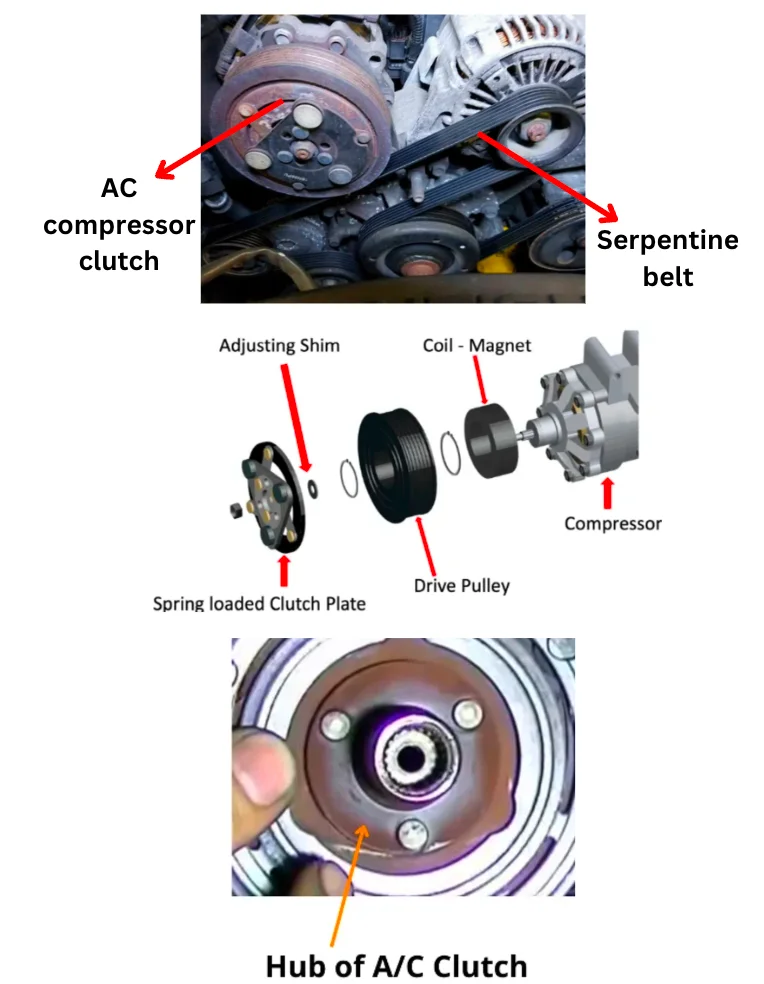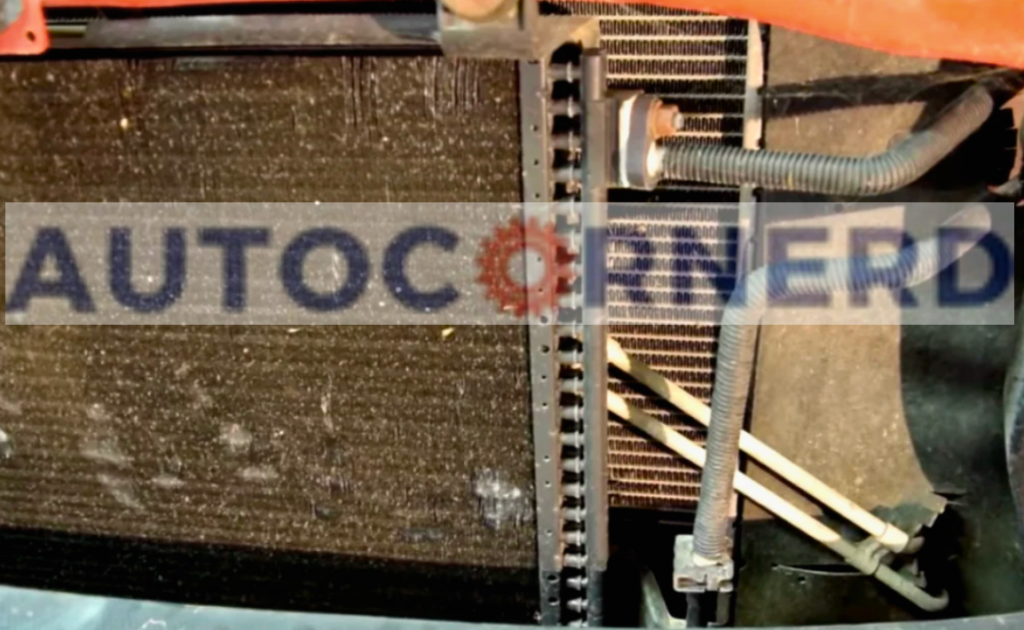Can Air Conditioning Affect Transmission?
The air conditioner in the car does not directly affect the transmission if it is working right. But overheating from a malfunctioning car air conditioner can break down the transmission fluid. This leads to jerky shifting of the transmission. Turning on the A/C compressor also puts extra load on the engine. This could cause rough shifting. If the engine RPM is limited when the A/C is on, the vehicle may be in ‘limp mode.’ The check engine light may also come on. Proper maintenance of the car A/C helps avoid problems with the transmission.
Have you been worried that your air conditioning unit may have an effect on your transmission? You’re not alone. In fact, many vehicle owners have concerns about the impact of the air conditioning on their transmission, and rightfully so.
You can also read my guide on transmission shifting hard when cold.
How Does Car Air Conditioning Consume Power?

The AC compressor clutch is the connection between the engine and the air conditioner. It transfers the power from the engine to the AC compressor. Its job is to turn the AC compressor on and off when the AC gets switched on or off.
When the AC gets turned on, the AC compressor clutch locks in place. This transfers the power to the AC compressor. The AC compressor then powers up the air conditioner.
The AC compressor has a pulley. The pulley gets power from the engine’s crankshaft through a belt.
The AC compressor clutch grabs onto that pulley to run the AC compressor. You can read more in my guide on ac compressor engages intermittently.
The amount of power consumed by the ac compressor depends on several factors, including the size of the car and its engine, the size of the ac compressor, and the condition of the ac components.
When the compressor is engaged, it puts extra load on the engine, reducing its overall power. This is why your car’s engine will feel sluggish and may even struggle to accelerate when the AC compressor is engaged.
How Can Air Conditioning Affect Transmission?
Air conditioning can affect a vehicle’s transmission in the following ways:
1. Cooling System Is Compromised

The transmission fluid moves around to lubricate the parts in the transmission. After that, it goes through the transmission cooler lines to control its temperature. You can see the transmission cooler lines near the radiator.
In some cars like Dodge, the radiator and transmission cooler are separate. In other cars, the transmission fluid trades heat through the bottom of the radiator.
If the engine gets too hot while the AC is on, the transmission fluid can’t trade heat well with the coolant in the radiator. This is because the temperature of the engine coolant doesn’t go down.
Because of this, the transmission fluid breaks down and loses its slippery properties. Also, the engine overheating damages the engine’s parts and sensors. These are responsible for the engine working right.
You should watch the dashboard in your vehicle. If it shows the temperature of your engine going up while the AC is on, you should stop right away. Then find out why the engine is overheating.
2. Bad Transmission Fluid
If transmission fluid has broken down due to overheating of the engine, it will lose its viscosity and lubrication properties.
You need to check the color of the transmission fluid. A healthy transmission fluid has a reddish tint. So, if your transmission fluid is brown or black, it means that transmission needs to be flushed.
3. Engine Is Rough Idling and Stalling
The engine does not get the right amount of fuel or air when it stalls or runs rough. This can make the engine suddenly stop running. Or it can make the engine run rough and shaky.
The engine may also start and stop over and over. It will not respond when you press the gas pedal.
When the engine runs rough or stalls, the transmission can shake. It won’t speed up smoothly like it should. This can make you feel like the transmission is broken. But really the engine is the problem.
So when you turn on the air conditioner, it uses 5 to 15% of the engine’s power. This gives less power to drive the vehicle. If your engine stalls or runs rough, the air conditioner makes it worse. Your vehicle gets shaky. This makes it seem like the air conditioner affects the transmission.
Also, if the engine runs rough or revs on its own, it will damage the transmission too.
Now I’ll explain why this happens…
The transmission fluid pump runs off the engine’s power. There’s no electrical connection to the transmission pump.
So more RPMs from the engine pumps more fluid through the transmission.
If engine RPM fluctuates from rough idling with the air conditioner on, transmission fluid won’t pump right. This causes more wear on the transmission parts and cooling. It means higher maintenance and repair costs.
4. Malfunctioning AC Compressor
The AC compressor is key in the AC system. It helps push the refrigerant around and keep the pressure right.
When you turn the AC on, the compressor starts up. It takes power from the engine. If the compressor isn’t working well, it can put more strain on the transmission. This makes it slip and lose power.
This can be a big problem when the AC is on and the compressor is working hard to keep the car cool.
If the AC compressor is sticking some, it could drag the engine and transmission down. This causes wear and tear. Your car may feel like it’s slipping or jerking when it shifts gears.
You can watch the below Youtube video to check if the AC compressor of your car is seizing:
5. Reduced Engine Power Mode
The vehicle may not smoothly shift to higher gears if the air conditioner (AC) is turned on while in reduced power mode.
Reduced engine power mode is a safety feature. It protects the engine and transmission from damage if there is a serious problem.
When triggered, the engine cuts power to the transmission. This reduces power to the wheels. It prevents overloading that can cause serious damage.
What Are The Symptoms Of A Bad AC Compressor?
Here are signs of a bad compressor:
- Bad smell: If there is a bad smell from the vents, the compressor may have problems.
- Hot air: If the air from the vents is warm, the compressor could be broken. Cold air is needed.
- Noisy AC: Loud grinding noises from the AC often mean the compressor is failing.
- Leaking fluid: If the refrigerant leaks out, the compressor is likely malfunctioning. Get this fixed fast before other parts are damaged.
- Damaged belt: A bad compressor wears out the serpentine belt quickly. Look for signs of heat damage on the belt. It may get weak and stretch or even melt. The damaged belt won’t directly affect acceleration. But it runs accessories like the water pump and alternator. If the belt fails completely, the engine can overheat as water pump will not run properly.
Furthermore, if the alternator does not run due to bad serpentine belt, it will not charge your vehicle’s battery. If the car battery is low on charge, your engine sensors will not work properly.
What Are The Causes Of Engine Rough Idling?
Here are the causes of engine rough idling:
- Vacuum leaks
- Faulty MAF sensor
- Malfunctioning O2 sensor
- Dirty throttle body
- Bad fuel pressure regulator
- Bad PCV (Positive Crankcase Ventilation) valve
- Fouled spark plugs
- Clogged Fuel Injector
- Faulty Ignition System
- Dirty engine air filter
- Low oil pressure
